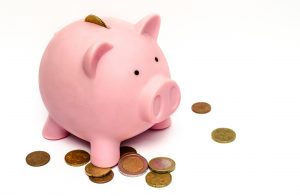
The Age of the youngest borrower –The age of the youngest borrower is used to estimate the length of the loan. The youngest borrower on title must be at least 62 years old to qualify. The older you are when you take out a reverse mortgage, the more equity you will have access to.
Your Home’s Value – Your home’s appraised market value determines how much home equity you have. Typically, higher home values equate to more equity available. However, the program currently has a lending limit set at $679,650, so any equity above this amount will not be used to calculate your payout.
Current Interest Rates – If you want to access as much of your home equity as possible, a low interest rate is important. A lower interest rate will result in a higher payout. It also decreases the amount of money added to the loan balance over the life of the loan.
Additional factors that will impact the loan proceeds available to you include:
Your Ability to Manage Debt – Lenders are required to conduct a “financial assessment’ to make sure you can manage your housing-related expenses, like property taxes and homeowners insurance. If the lender believes you cannot fulfill these, they will withhold some of your loan proceeds to pay these expenses on your behalf. This is to help prevent foreclosure.
Closing Costs: Generally the closing costs are financed into the loan but you can choose to pay these out of pocket. The closing costs include
1. The initial Mortgage Insurance Premium (MIP) which is the lesser of 2% of your home value or 13,593.
2. The lender’s origination fee, up to $6,000 based on the value of your home.
3. Title and county fees
4. Other charges such as appraisal costs, reporting fees, or any other miscellaneous costs.
Existing Mortgage: If you currently have a mortgage on your property, this loan must be paid off using the proceeds from the reverse mortgage.2 If the proceeds from a reverse mortgage are not enough to pay off the existing mortgage you have the ability to bring the remaining balance to closing.
If you would like to find out how much you may qualify for and get answers to your questions fill out the calculator above or call 1.800.976.6211.
Important Disclosures:
1 You will retain the title and ownership during the life of the loan, and you can sell your home at any time (at which time the loan becomes due). The loan will not become due and subject to repayment as long as you continue to meet loan obligations such as living in the home as your primary residence, maintaining the home according to the Federal Housing Administration (FHA) requirements, and paying property taxes and homeowners insurance. Failing to meet these requirements can trigger a loan default that may result in foreclosure.
2 Your current mortgage(s) and any other existing liens against the property must be paid off at or before closing.
